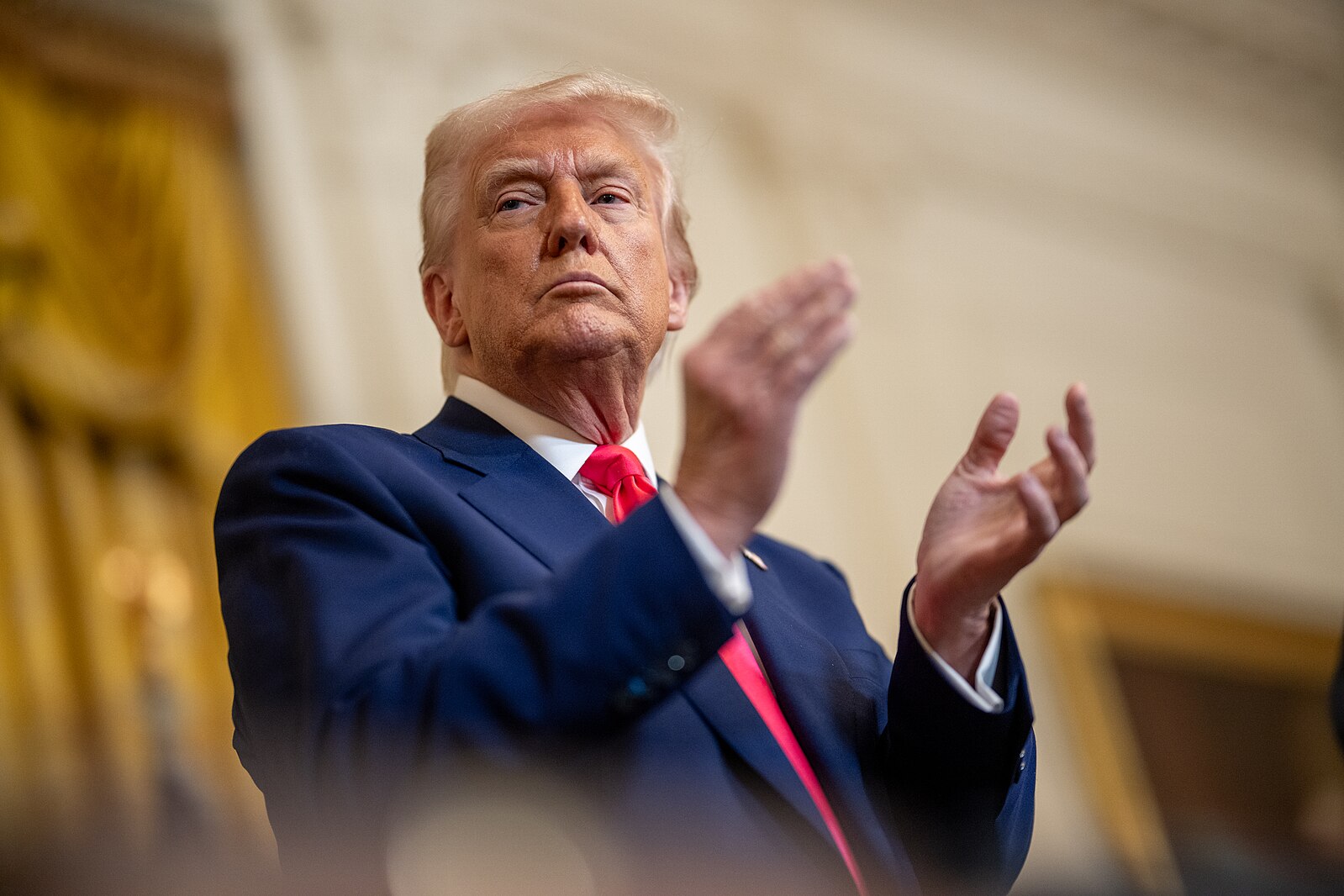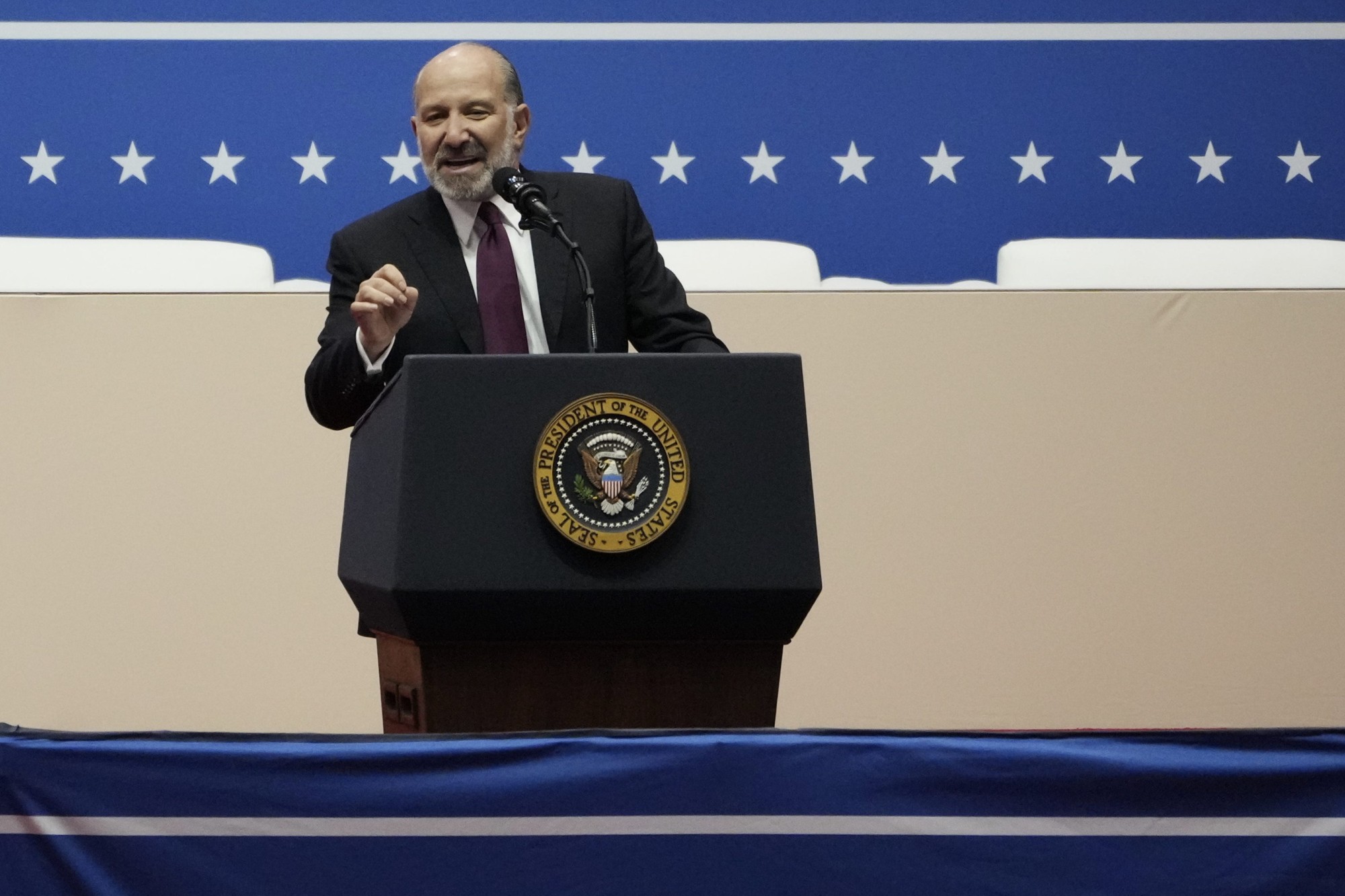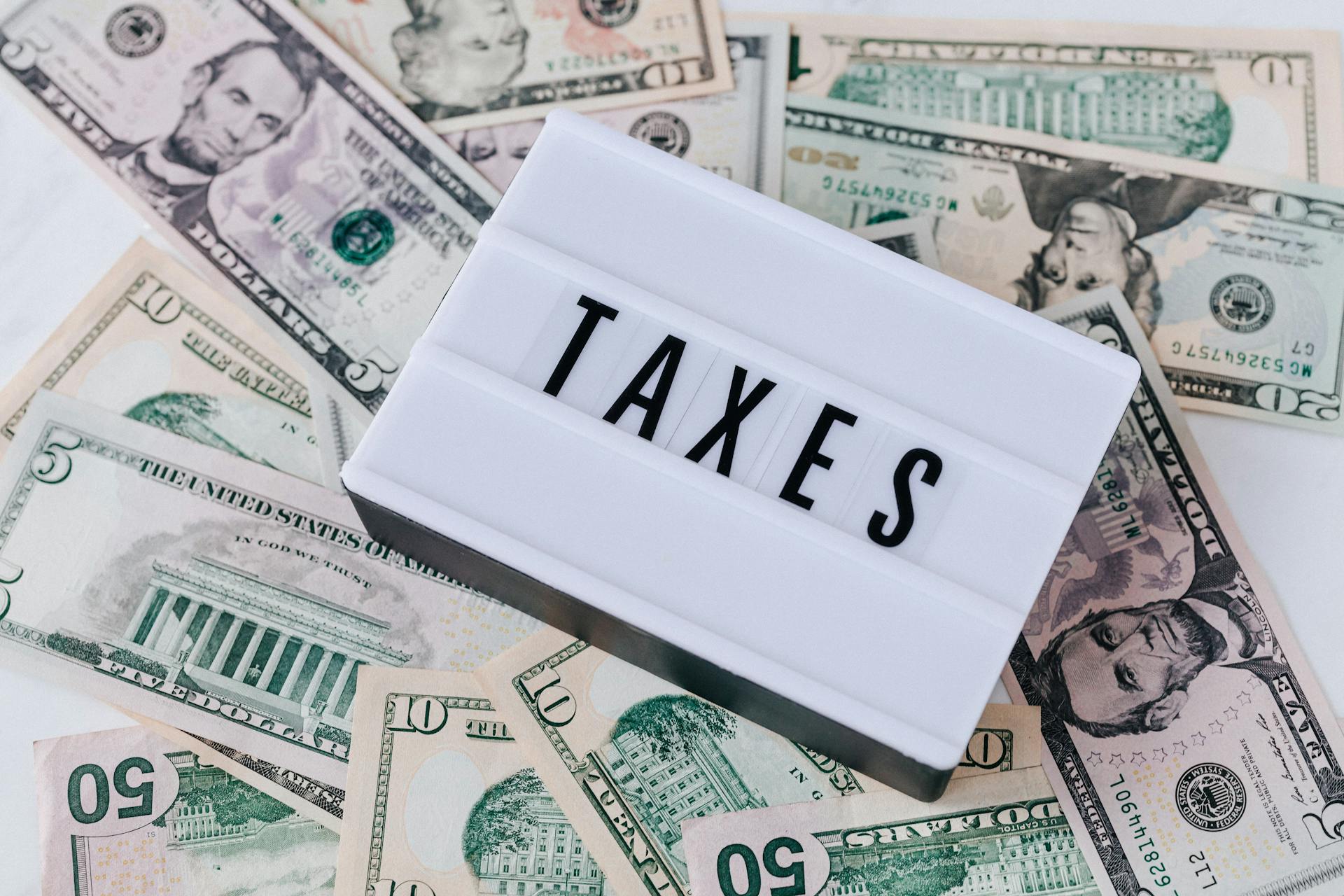U.S. News
Trump Wants to End Income Tax: What It Means for $100K Earners
By Jake Beardslee · April 10, 2025

Trump Proposes Eliminating IRS, Replacing Income Tax with Tariffs
Donald Trump has floated a sweeping economic proposal several times: eliminate the Internal Revenue Service and abolish federal income taxes. To compensate for the estimated $3 trillion in lost annual revenue, his plan involves implementing broad-based tariffs on imports.In line with this vision, U.S. Commerce Secretary Howard Lutnick revealed in a March interview with CBS that Trump specifically aims to eliminate federal income taxes for Americans earning under $150,000 annually. “I know what his goal is: No tax for anybody who makes less than $150,000 a year. That’s his goal. That’s what I’m working for,” Lutnick said during the interview. The White House / Wikimedia

Bigger Paychecks Could Come with Bigger Price Tags
While this idea would result in larger paychecks for many Americans, it also introduces significant concerns about inflation. Replacing income taxes with tariffs would likely push costs higher across a wide range of consumer goods, effectively shifting the tax burden from earnings to everyday spending. Kaboompics.com / Pexels
Lutnick Defends Trump’s Economic Policies, Blames Biden for Recession Fears
Despite concerns about the economic impact, including fears of a potential recession, Lutnick defended the president’s initiatives. “These policies are the most important thing America has ever had... The only reason there could possibly be a recession is because of the Biden nonsense we had to live with,” he argued, adding that Trump's strategies would boost domestic manufacturing and economic growth. Sam Greene/The Enquirer / USA TODAY NETWORK via Imagn Images
$100K Earners Could Take Home $13K More Under New Plan
For someone earning $100,000 annually, the change would be immediately felt in their bank account. According to 2025 federal tax brackets, the effective tax rate on that income is roughly 13.61%. Without federal income tax, that person would take home an additional $13,614 per year. Kaboompics.com / Pexels
Tariffs Act as Hidden Taxes Passed Down to Shoppers
However, that gain could be quickly offset by rising consumer prices. Analysts point out that tariffs function as indirect taxes, which businesses often pass down to consumers. This means shoppers would bear the brunt of increased import costs. emirkhan bal / Pexels
Households May Face $2,100 in Extra Costs Each Year
Economic forecasts suggest the average American household could spend an extra $2,100 annually due to higher prices stemming from tariffs. Big-ticket items could see even steeper increases. For example, the cost of a new vehicle could jump between $2,500 and $5,000 for domestic models, and as much as $20,000 for certain imports. kaboompics / Pexels
Experts Say Tariffs Alone Can’t Replace Income Tax Without Extreme Rates
Experts also warn that practical challenges—such as shifts in consumer behavior—would likely diminish the total revenue generated through tariffs.“Tariff rates would have to be implausibly high on such a small base of imports to replace the income tax,” noted Kimberly Clausing and Maurice Obstfeld, fellows at the Peterson Institute for International Economics, in a June report. Kelly / Pexels
